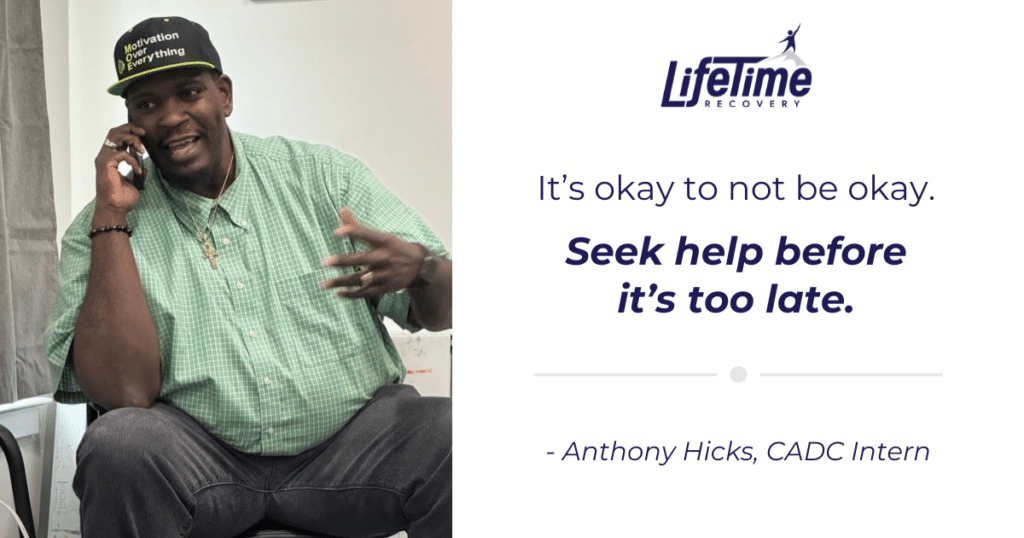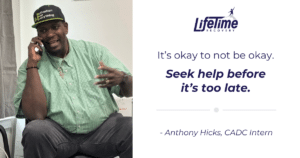Our very own CADC Intern, Anthony Hicks, had a chance to speak with NJ 101.5 on the prevalence of alcohol misuse in our community. Check out his take on the matter and helpful tips on how to identify and work through this challenging issue in the interview below!
One of the biggest problems that continues to plague the Garden State is alcohol abuse. It is estimated that more people in 2023 lost their lives from excessive alcohol use in New Jersey than drug-related deaths.
The Statistics
According to The National Center for Drug Abuse Statistics, an average of 3,008 annual deaths in New Jersey are due to excessive alcohol use. The stats also show that 54.8% of excessive alcohol use deaths in New Jersey are from chronic causes, such as alcohol use disorder.
The Centers for Disease Control and Prevention (CDC) estimates that 79,359 years of potential life is lost to excessive alcohol use each year in the Garden State, and the State of New Jersey Department of Law and Public Safety stated there were 2,564 suspected drug-related deaths in the state in 2023.
These statistics are alarming, said Anthony Hicks, a counselor at Lifetime Recovery in Mullica Hill. He said, unfortunately, things like alcohol abuse and the opioid epidemic have become everyday normality because drugs and booze are easily and readily accessible. This does not help people to gain control over their addictions, he said.
Signs of Alcohol Abuse
Hicks said there are four signs to be on the lookout for, whether it’s within yourself or in someone else.
Anxiety – If you’re having anxiety because you can’t have a drink or you don’t have access to a drink, that’s a problem.
Morning Drink – If you wake up in the morning and immediately you have to have a drink to face the day, that’s an issue.
Emotional Drinking – For example, if you have a bad day at work and the way to deal with it is to have a drink, or if alcohol is the first thing you turn to in order to deal with life, that’s a problem.
Forefront – If alcohol is always at the forefront of your mind, or if any activity you do must involve drinking, it’s time to seek help.
Tips to Cut Back on Alcohol Consumption
Set Your Drinking Limit – Choose a limit of how much you’ll drink. Hicks said if you normally have five drinks a day, cut it down to three to start. Also, schedule days where you won’t drink alcohol at all.
Keep A Record – This is important journal keeping. Hicks said to write down every time you have a drink and how much you’re consuming. Reviewing the results may give you some perspective on your drinking habits.
Cut Down Drinking At Home – Limit or remove alcohol from your home so it makes it easier to resist the temptation.
Support Network – Surround yourself with positive influences and people who will be respectful and supportive. If you find yourself around people who like or need to drink to have a good time, Hicks said to change your environment. Your environment plays a huge role in the behaviors that people display.
Seek Help – Ask for help. Support groups, having a sponsor, or going to therapy are safe and healthy ways to help overcome problems with alcohol.
Therapy
Oftentimes, family members want to be supportive of their loved ones going through an alcohol abuse issue. But Hicks said unless they’ve been through it themselves, it’s very hard to understand what the addict is going through.
“So there are actually educational meetings where family can go and get educated on these things. It also makes the addicted individual feel more comfortable because the family knows now. It helps the individual move forward in their recovery,” Hicks said.
Some addicts choose to go to therapy alone. That’s okay, too. Whatever the individual decides, the key is to just start, he said.
The beautiful thing about recovery is that there are many different meetings for whatever problem an individual may have, so help is not far away, Hicks said.
Bottom Line
If you are someone who is struggling with addiction, seek help. Call us today at (855) 908-0064.



